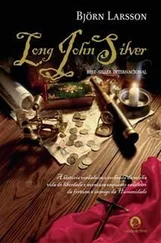What could I do? I kept seeking him out in bed, trying to lavish myself on him and to dower him with oblivion. I hardly let him rest, I kept drawing him back and wanting to begin again. It seemed the very least I could contribute to our dreary situation. The spell of it worked on me too; I’d emerge still half delirious, bruised and spent, out of myself. I whispered to him, “Best of all husbands.”
“You’re my girl.”
“They have no idea who you really are,” I said.
“Forget ‘them,’ ” he said. “Nobody’s here. Just us.”
In our room, a single light flickered from a candle I’d set by the bed.
“My father’s a failure,” I said.
“What?”
“He is.”
“Why are you saying that?”
“I want to.”
“Shush,” he said. “Be calm, okay? It’s all right.”
If he no longer wanted to hear any such thing, there were other things he wanted. He wanted complete silence while he read for hours, he wanted to win any argument about any topic, from Tolstoy’s translators to the post-armistice in Korea, and I let him. When my parents fed us nourishing suppers, he kept up his darkly blithe quips about his prospects. “Exploited today, fired tomorrow,” he said (yet again). They all laughed. They liked him better now. My sister said, “I wish you were a teacher in my school.” My father poured beer for him and talked to him about purges and backlash and touched his shoulder, which Ted seemed to like. He didn’t, after all, have a father of his own.
But what were we going to do and what about me? My mother let me use the typewriter in her office to tap out Ted’s job-seeking letters to states where he wasn’t known. What a mess I had made. Ted’s paychecks stopped in June.
I told him I was going to ask if they needed anyone at the bakery, and I was a little surprised when he didn’t object. It was humbling to return to Mrs. Plymouth’s as a married woman—“Didn’t think we’d see you, ” customers said — but I still liked the buttery smells, the doilies on glass shelves, even the striped aprons and the silly hairnets, that orderly, sugary version of home.
My mother said there was no dishonor in being short of cash. “ Au contraire ,” Barbara said. I brought home crumbled cookies and soggy Danish that stuffed Ted and me and made us feel poorer.
Ted suggested I bring boxes of day-old cake to the Ramirez family down the hall, and their kids adored us after that. I liked my poor husband better than I ever had. He was oddly improved by being broken — I’d read of that happening, but I’d never seen it before in real life. He told Maxie, “I couldn’t pick a better girl than Louise to be unemployed with.”
But I told Ruthie I wasn’t, actually, sure I could get through this part on love alone. I was having a Popsicle with her in the park, near a grassy patch we’d always liked. “What if I have to follow him into exile in Siberia?” I said. Ted had just sent an application to Provo, Utah, which we could not resist calling the Steppes.
“You would ditch him when he was down?” she said. Nobody we knew did that. In Hollywood, in trashy magazines, but not in our neighborhoods.
“No,” I said. “But I’d hang on without my heart in it. I’d be one of those sour wives, all martyred and sarcastic.”
“ No . Not you. You love Ted,” Ruthie said. She had a boyfriend now and hoped their dating would end in marriage, and I was alarming her.
I thought of my mother saying, “Sold to the first bidder,” when she wanted to warn me against leaping too fast into love. But if love didn’t make the world go around, what did?
A month later, I found myself packing, not for Utah but for Okinawa. The one job that came through for Ted was teaching English to American kids on an air force base in Japan. Ted said all the Americans liked it over there, and there were thousands of Americans still in Japan. With children who needed my husband’s attention. My mother was very upset.
“You’ll be living inside the U.S. military,” she said. “Do you want that? You don’t want that.”
“I’ll learn Japanese!” I said. Although they said people hardly left the base, I dreamed of myself making new sounds. “I have to be with my husband,” I told her.
“He doesn’t have to go.”
I wanted to go. I felt superior to everyone I knew because I was going.
“You stuck with Dad,” I said.
“Do I have to say how different that was?”
My father didn’t say much, but he was clearly very disappointed. He’d look into my face and then turn his gaze away.
Did I have no principles at all? My sister said, “Do you know where you’re going? They used to send planes from out of there to bomb Korea. For Christ’s sake.”
Ted and I were in wonderful spirits. Japan! We talked for hours about what to bring, we read The Chrysanthemum and the Sword and a book of haiku the library had. I found a recipe for sukiyaki and I stirred bits of beef in a pan with canned bean sprouts. “Sometimes bad luck turns into good luck,” Ted said. We both thought we’d fallen into a wildly suitable fate: everything would be taken care of, and everything would be beyond what we’d imagined. We were making a great escape. We fell asleep holding hands.
My sister said, “I never thought you would be like this.”
We were going by ship from California, and we had to send everything in trunks and crates. What was the weather like? Like here in the rest of Japan but warmer in Okinawa. And I read that the Japanese believed theirs was the only country that really had four seasons, which seemed sweet of them. I was sorting out which books to give to Ruthie when Ted came into the room, shouting, “I don’t believe it!” Papers had come with an official seal: Ted had a security clearance to reside on the base, but family member Louise Buckman Pfeiffer was refused one.
“Did you know about this?” I wailed.
I’d never heard of such a thing. But what, really, had I heard of?
“Maybe I can get work as a janitor in your bakery,” Ted said grimly.
I hated the goddamn government. My parents were right. Had always been right. “You should go without me,” I said. I was angry with Ted for having wanted to go in the first place. “You should just go as if you really were in the army.”
Ted was hugging me. “You’re the most amazing person.” We were both sticky from the summer heat, and the scent of his skin was such a sharp, familiar smell as he held me.
He was ready to get on the ship to Japan without me, and he thought I was noble. I felt crazy.
I could have stopped him from going, but I didn’t. He kept saying, “There aren’t many wives like you,” as if I were a paragon of enlightened sacrifice. “I am just so wonderful,” I said, but he didn’t mind my tone. Why should he mind? He was going to have his adventure. I was the one cheated and defeated. Ted, in those last weeks, seemed to have decided he had a treasure in me. He’d watch me move around the house and say, “You are something.” He’d hold me close for minutes at a time, and I’d feel my heart in my chest beating for him. He would miss me. I was scared and said so, but he thought this was another sign of my valor.
The first months without him were atrocious. I had to move back to my parents’ apartment, and I’d lie awake in my old room, with Barbara rustling around in the next bed, and everything was intolerable. The absence of Ted was like a weight in all my limbs, and my poor body was beset with useless longing. Ted made one expensive phone call to me on arrival—“The base is ugly!” he said, and sounded very thrilled. It was three weeks before a letter reached me ( When I take walks I see water buffalo in the fields! Also lots of geckos and mosquitos. The students are easy — I don’t have to bribe them! ), and I wrote to him every day ( The autumn weather is still very warm and Barbara wants to be a French major, very practical ). My father said, “I can’t get over having a son-in-law on a military base,” and in truth I agreed with him. The whole thing was a humiliation.
Читать дальше












